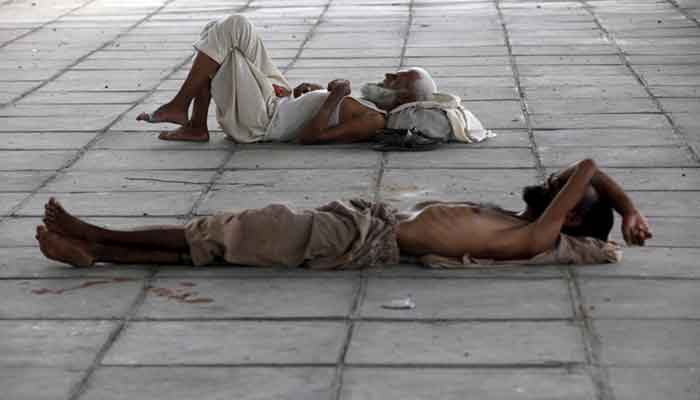Karachi citizens experience surge in food poisoning, other diseases amid intense heat
Hospitals see 15% to 20% increase in patients suffering from food poisoning, other diseases, says doctor
An increase in cases of food poisoning, intestinal infections and other stomach diseases has surfaced as heat intensifies in Karachi, further deteriorating the health of citizens.
Watermelon, one of the most consumed fruits of the summer, has become a major cause of complications.
Though it is considered a nourishing fruit, especially during intense summer heat, however, patients are now lining up at hospitals saying that they are contracting cholera and suffering food poisoning after eating watermelons.
While speaking to Geo News, Dr Irfan Siddiqui, an expert from Jinnah Hospital, informed about the reasons behind this increase in diseases, saying: "Seasonal fruits are being injected to make them thick. Cosmetic injections are being used on them."
He added that chemicals are also being added to these fruits.
In order to prevent diseases and protect oneself, he said: "Fruits should not be frozen instead, they should be kept in the fridge, and people should not consume them excessively."
People should give their stomachs a gap after eating these fruits, he added.
According to the doctor, as necessary precautions are not being taken, there has been a 15% to 20% increase in patients. He also advised that prevention is the only solution against gastro infections and vomiting.
Last week, the Pakistan Meteorological Department said that temperatures in Karachi and other parts of the Sindh province are expected to remain unusually high, adding to the discomfort.
Since then, the port city has been in the grip of intense heat, especially from 11am to 4pm.
The higher authorities have advised citizens not to go out unnecessarily during this time in order to prevent heat-related medical emergencies.
-
Jelly Roll explains living with 'severe depression'
-
Charli XCX reveals ‘confusing’ toll ‘Brat’ popularity took on her
-
Margot Robbie opens up about imposter syndrome ‘crisis’
-
Hailey Bieber reveals how having ovarian cysts is 'never fun'
-
Sir Elton John details struggle with loss of vision: 'I can't see'
-
What we know about Chris Cornell's final hours
-
5 famous celebrities who beat cancer
-
Oprah Winfrey talks about weight-loss 'tool to manage' health












